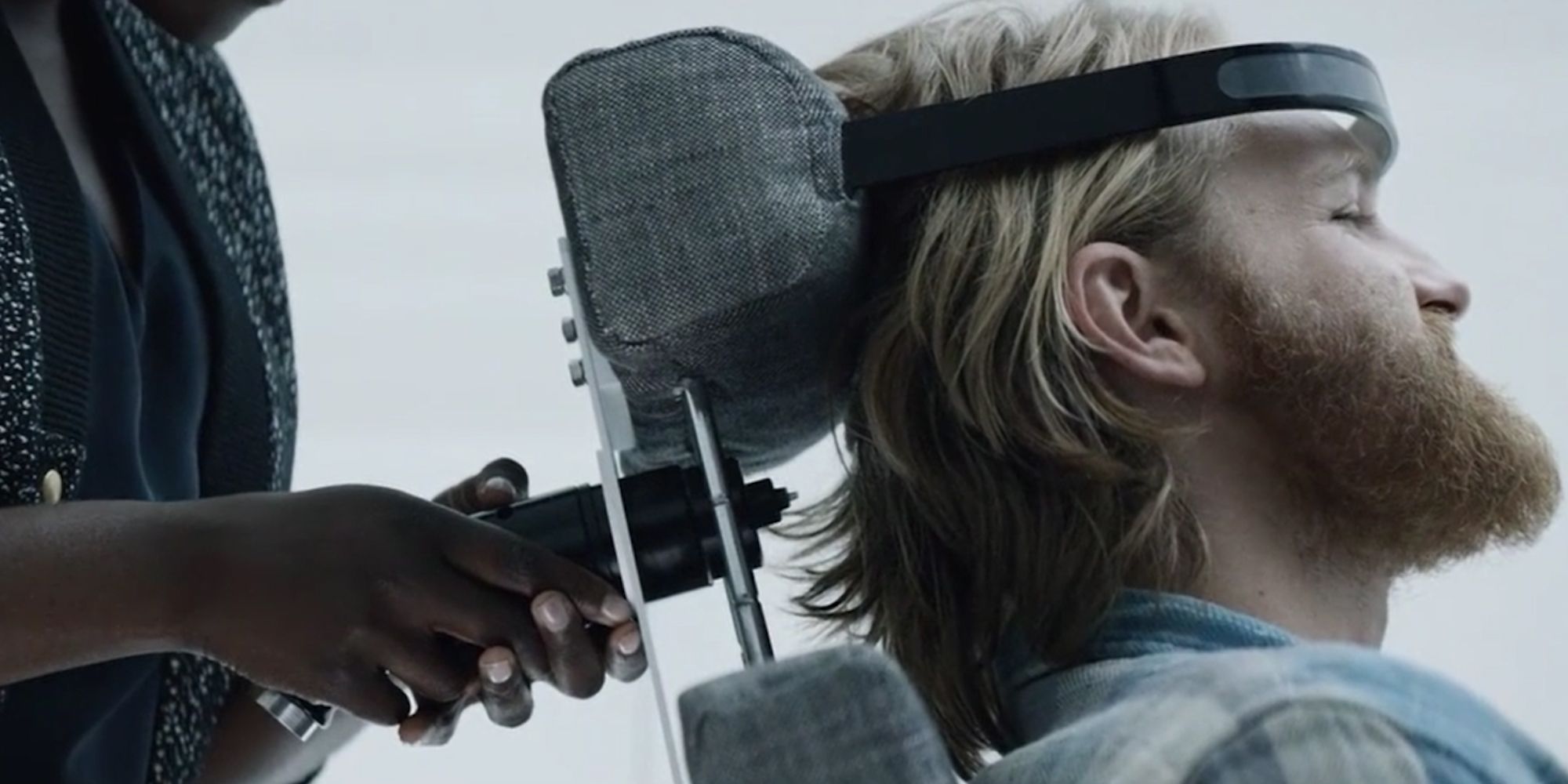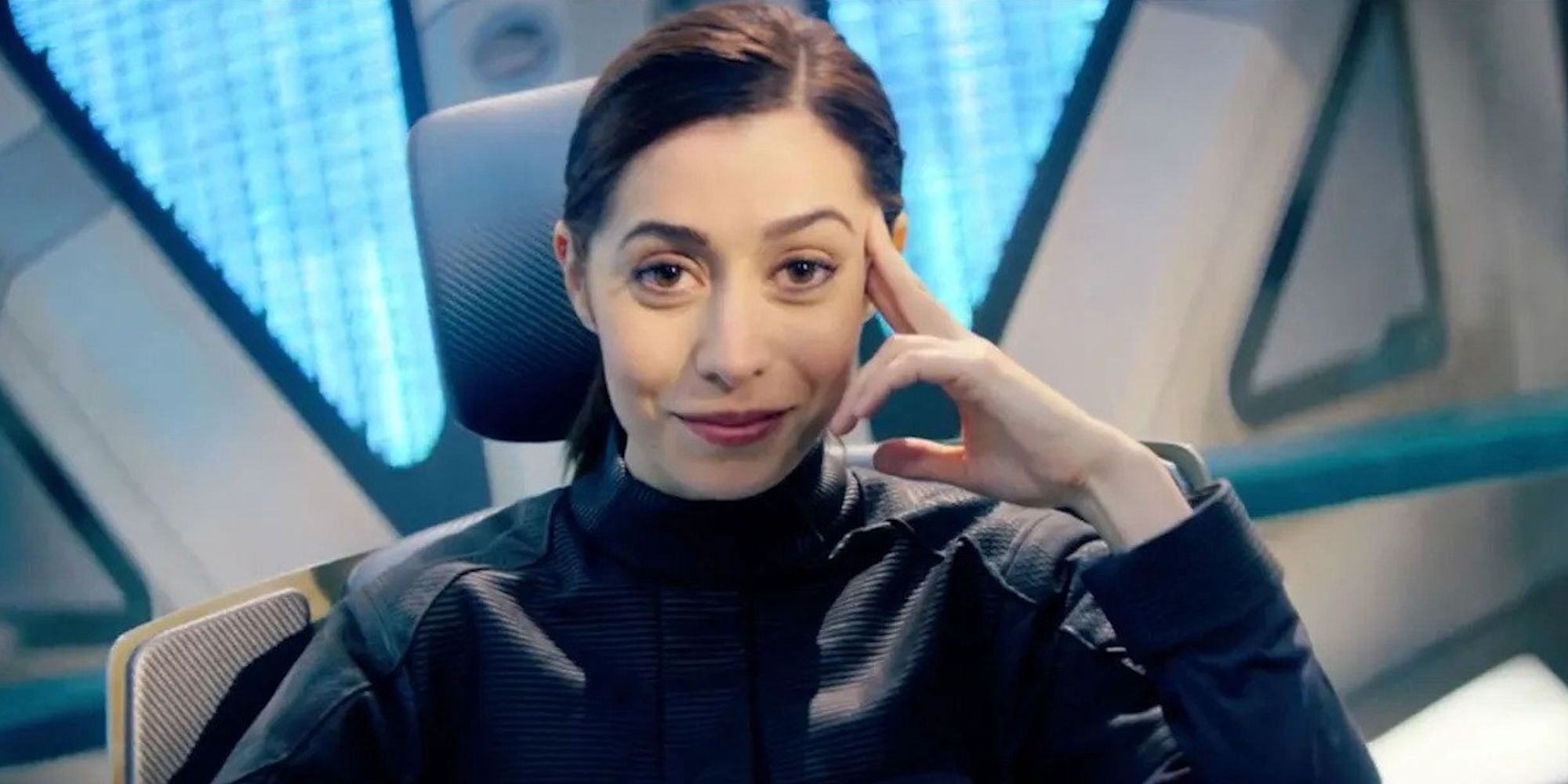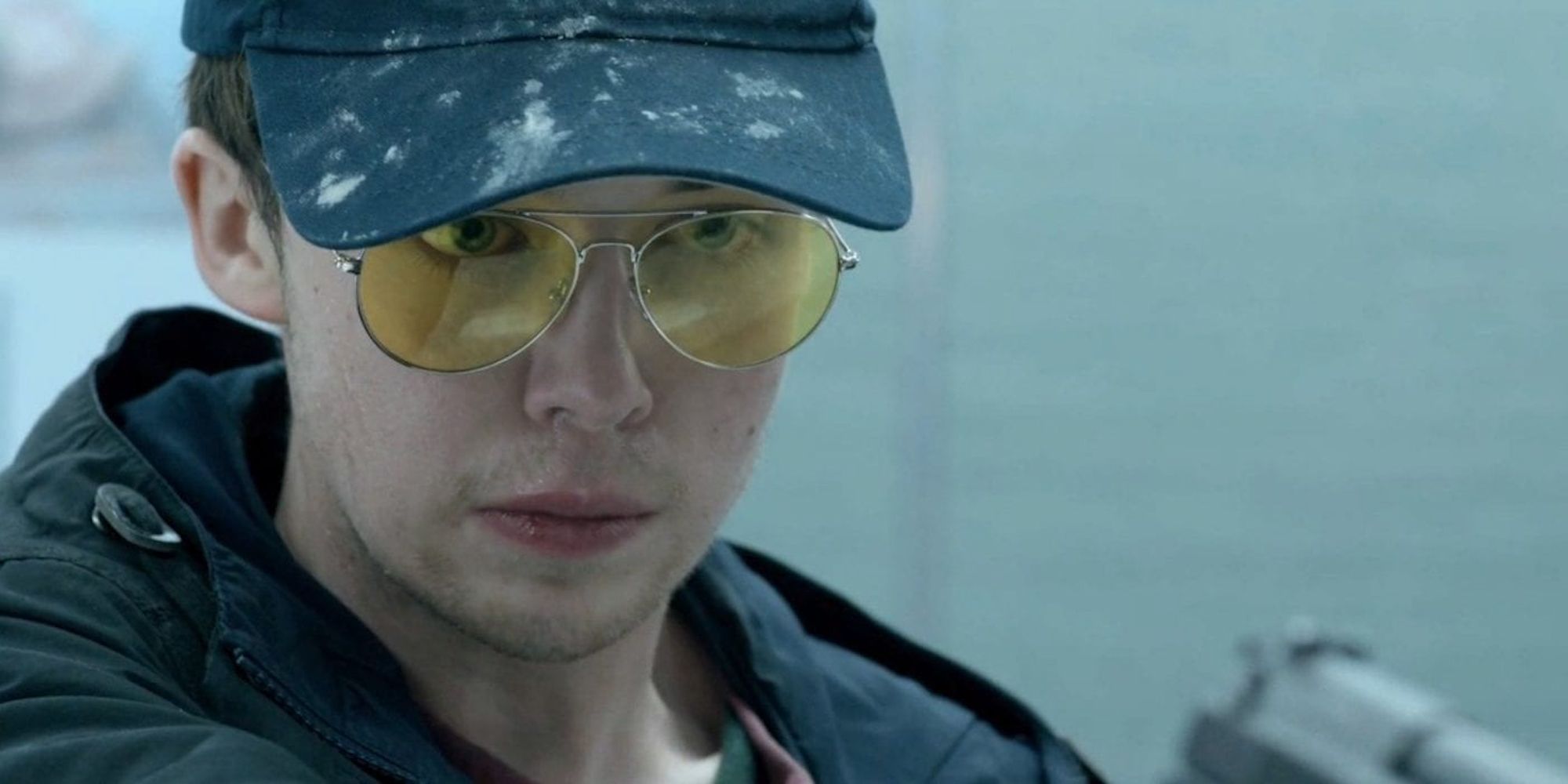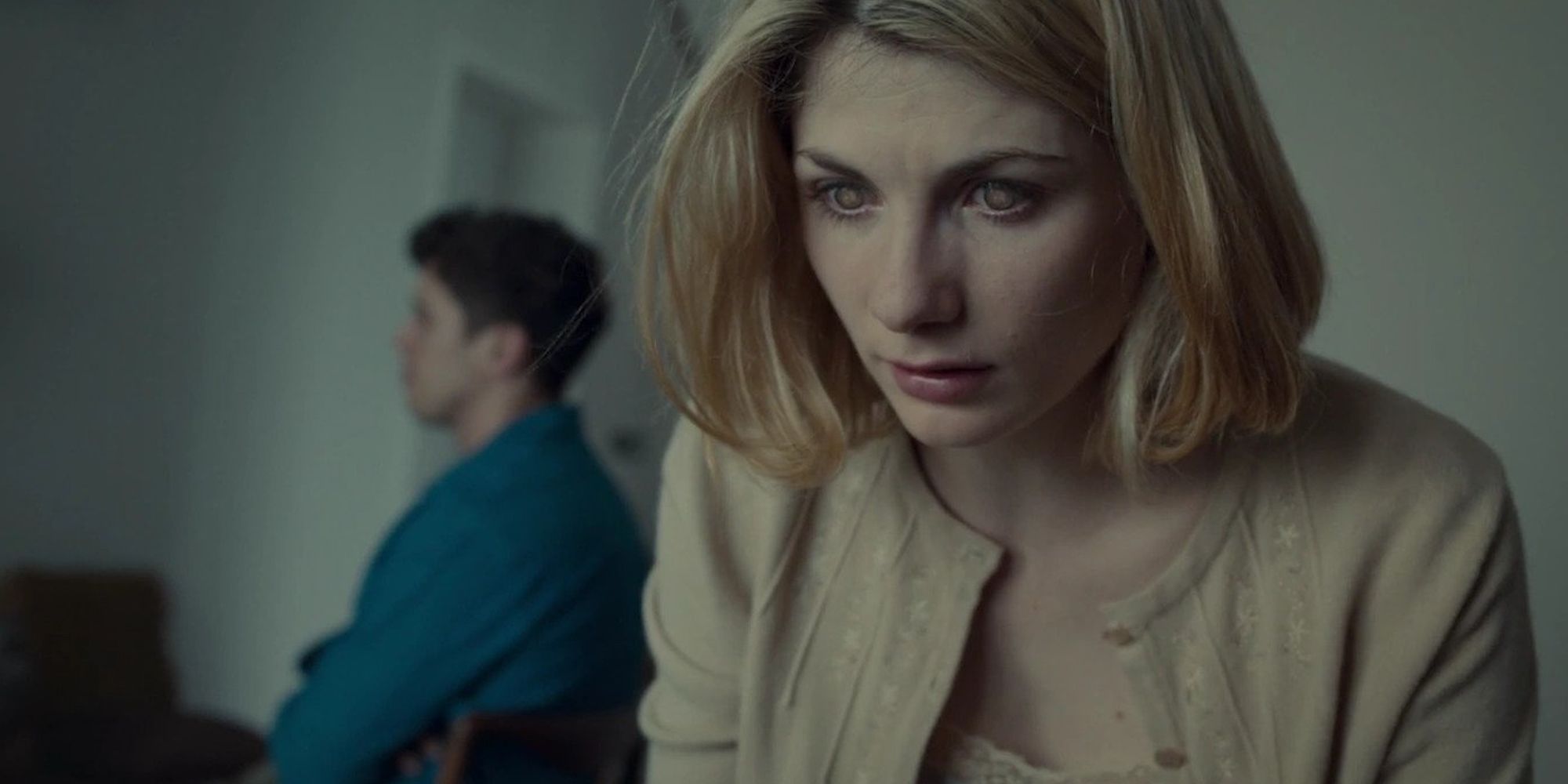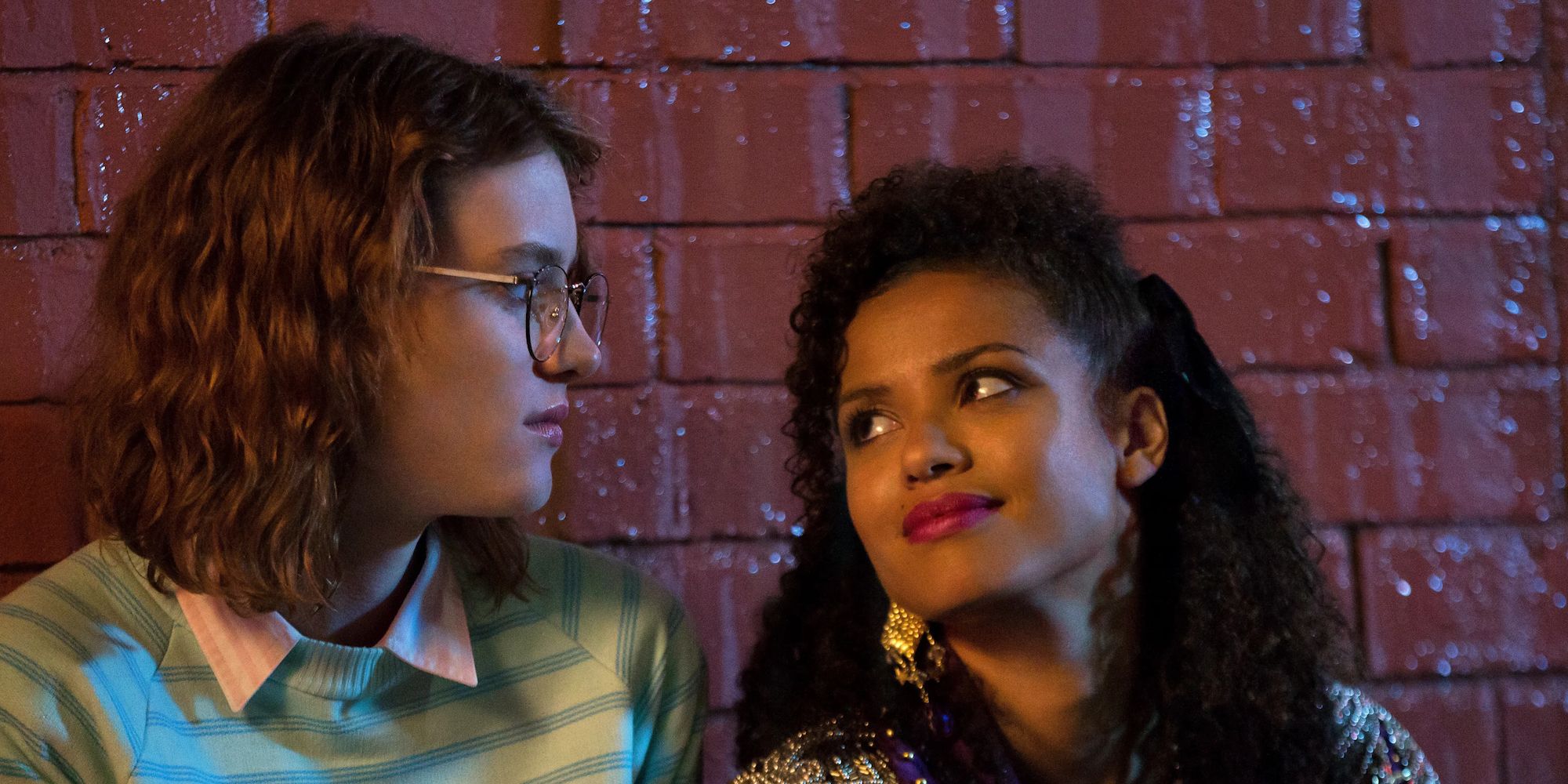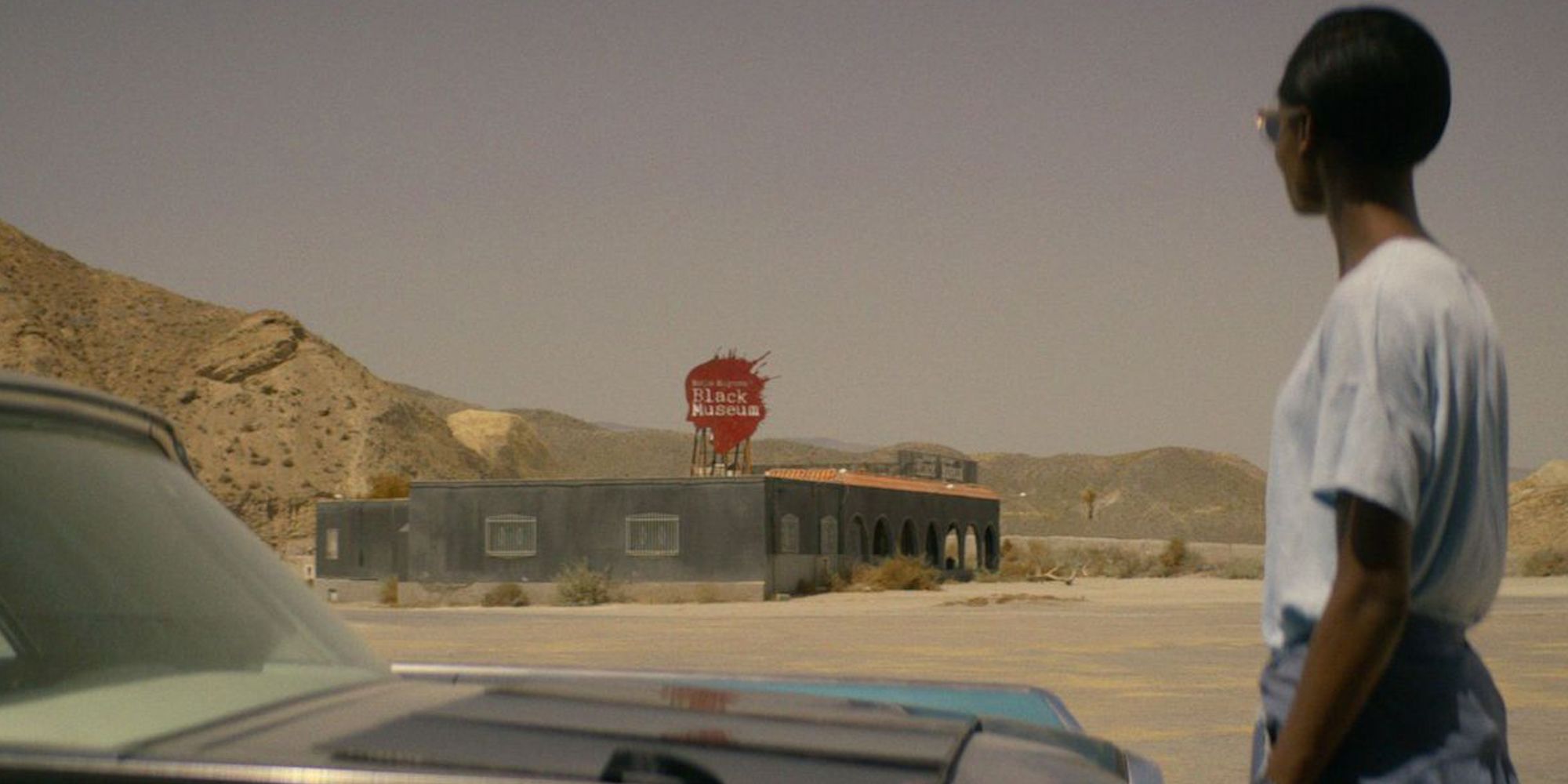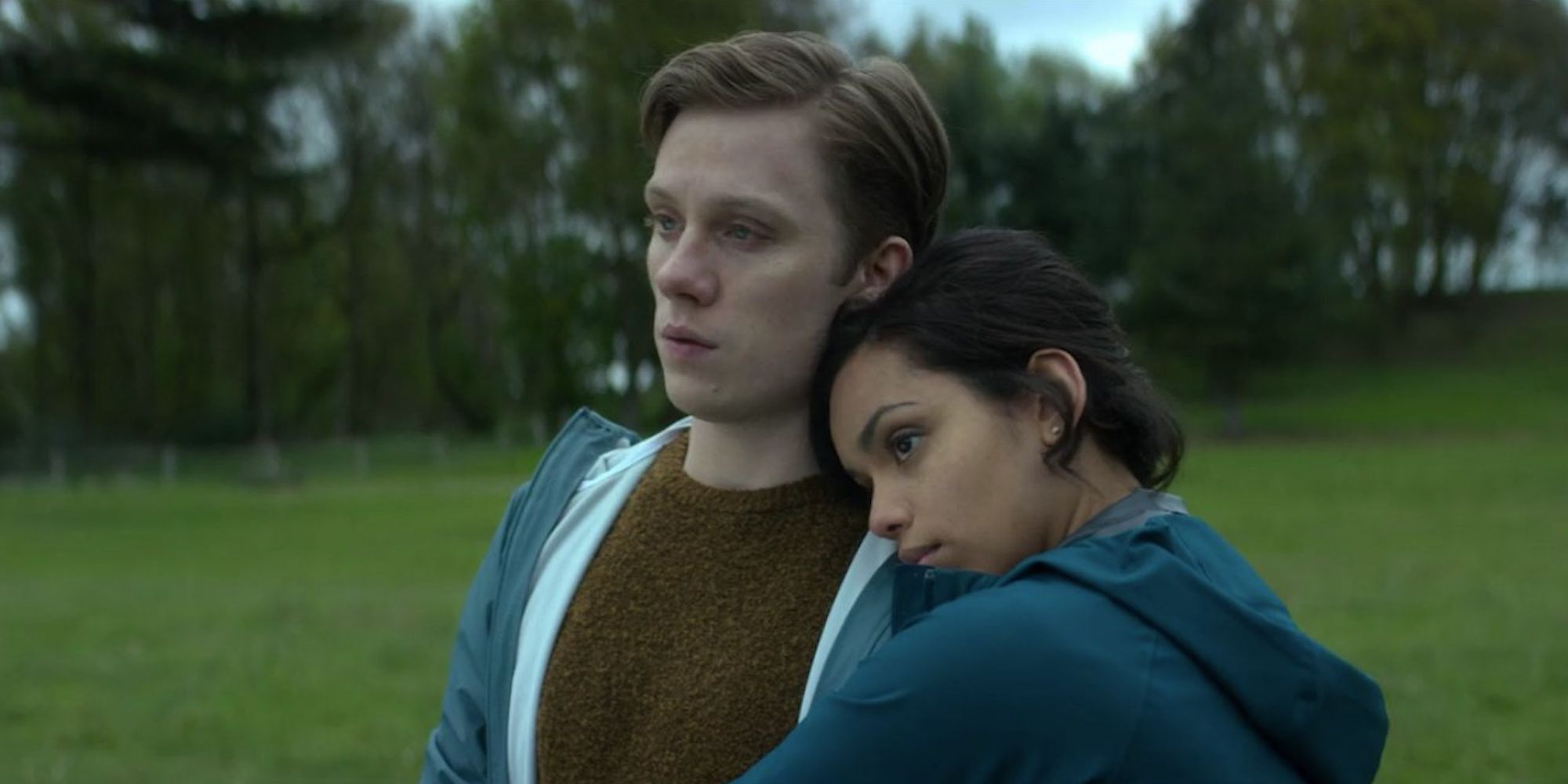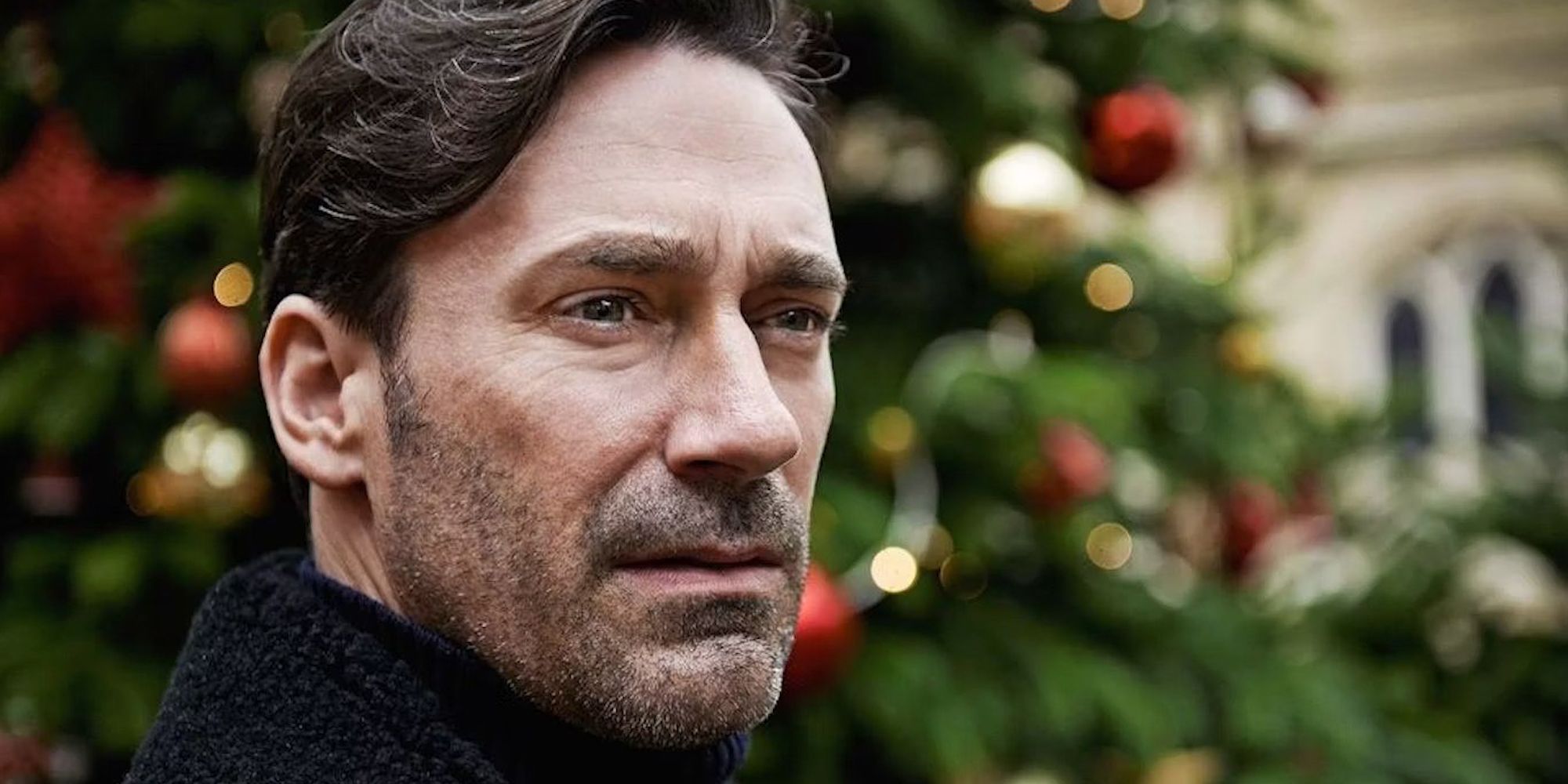One of the best TV shows of the 21st century has to be the sci-fi anthology black mirror. The series takes real-world ideas and technology and turns them into clever (and often terrifying) scenarios. In this respect, he is the true heir of The twilight zonemore so than the 2019 reboot.
Like most of the best sci-fi movies, black mirror uses the near future to delve into the present. Its best episodes explore the impact of today’s dominant technologies – smartphones, social media, virtual reality, drones – but extrapolate them to their logical endpoint. The result is one of the best-written horror shows ever made, which does for computers and the internet what Jaws done at the beach.
‘Playtest’ (S3, E2) — IMDb: 8.1/10
Wyatt Russell stars in this episode as a man who is paid to test an augmented reality video game that taps into the player’s worst fears. The game soon becomes scarier than expected, and the lines between reality and simulation blur. The episode is one of the best straight psychological horror pieces in the black mirror cannon, reminiscent of a David Cronenberg film.
As usual, the fact that the technology isn’t so far off is what elevates the episode. The Oculus Rift and HoloLens are already here, albeit in their infancy. “Playtest” raises some interesting questions about the use of technology to escape reality and the effects it will – has – on our psychology.
“Dive” (S3, E1) – IMDb: 8.3/10
Charlie Brooker skewer social media and status games in this one-episode pastel-colored nightmare directed by Joe Wrightthe filmmaker behind Atonement and darkest hour. It takes place in a world where people use an app to rate themselves on a five-star scale. Your score determines your status in society and how you will be treated. Lacie (Bryce Dallas Howard) is a young woman looking to increase her score, but circumstances beyond her control conspire to completely ruin her score.
“Nosedive” is a great commentary on the toxic effects of social media, where people are constantly judged in front of the group. He also refers to real-world systems like China’s planned social credit system, which would assess all citizens and give them benefits or penalties based on their behavior. “Nosedive” is an hour of entertaining television and a cautionary tale about the dangers of obsessing over societal approval.
‘USS Callister’ (S4, E1) — IMDb: 8.3/10
Robert Daly (jesse plemons) is a bitter software developer who feels his colleagues don’t give him the respect he deserves, so he uses their DNA to create avatars inside a star trek-like game. Robert dominates these digital clones inside the game until one of them (Cristin Milioti) tries to mutiny against him.”
“USS Callister” is one of the most purely entertaining black mirror episodes. The performances are excellent (especially Plemons’ impression of Captain Kirk) and the sci-fi send-offs are spot-on. It also ends in a surprisingly optimistic way, with the villain finally receiving his reward.
“Shut Up and Dance” (S3, E3) – IMDb: 8.4/10
This dark episode revolves around teenage Kenny (Alex Lawther), who is blackmailed by a hacker who seizes a video of him masturbating. The hacker orders Kenny to commit a series of bizarre criminal acts. Kenny meets a middle-aged man (Jerome Flynn) who is also blackmailed, and the hacker orders them to commit theft.
“Shut Up and Dance” is probably the darkest and most unforgiving black mirror episode. It could have crumbled into a nihilistic mess, but the episode holds its own thanks to strong performances from Lawther and Flynn. They deserve praise for pulling off these challenging roles.
“All Your Story” (S1, E3) – IMDb: 8.5/10
Pervasive phones have allowed people to record more and more of their lives, and this episode brings that idea to its logical conclusion: technology has been invented that can record everything a person sees and hears. Lawyer Liam (Toby Kebbell) suspects his wife Ffion (Jodie Whittaker) had an affair, so he’s looking into all of her recorded memories for any signs of infidelity.
“The Whole Story of You” was the first episode of the series not to be written by Brooker. Instead, the script is to Jesse Armstrongthe acerbic British comedy writer peep show and HBO Succession. As a result, his range is smaller than usual, but no less accurate in his observations. It’s a clever exploration of memory and self-deception.
“Hated in the Nation” (S3, E6) – IMDb: 8.5/10
This spin on a police procedural follows two detectives (Kelly MacDonald and Faye Marsay) investigating a series of murders. The victims all turned out to be victims of online abuse. And the murder weapon? Swarms of tiny robot bees have been created to pollinate flowers as real bees are on the brink of extinction.
“Hated in the Nation” is a mixed bag, exploring ideas like social media mobbing, environmental collapse, and nanotechnology. While not the best-written episode of the series, it’s worth watching for its unique take on the great fear of the internet age: online shaming.
“San Junipero” (S3, E4) — IMDb: 8.6/10
San Junipero is a resort located in a simulated reality created for seniors, where users can experience through younger avatars. The story follows the shy Yorkie (Mackenzie Davis) and the extrovert Kelly (Gugu Mabtha-Raw), who meet in San Junipero and fall in love.
The performances and cinematography are excellent, as is Brooker’s dialogue. “San Junipero” is unique among black mirror episodes because it features a cautionary tale and warm characters. It is also probably the most moving.
“Black Museum” (S4, E6) – IMDb: 8.6/10
This episode follows Nish (Letitia Wright), a woman who visits the Black Museum and hears stories about some of its most intriguing artifacts. However, Nisha secretly has unfinished business with the museum curator.
The episode supposedly includes Easter eggs and references to all black mirror episode composed so far. Items on display at the Museum include a robot bee from “Hated in the Nation”, the tablet from “Arkangel” and the bathtub from “Crocodile”, among others.
“Hang the DJ” (S4, E4) – IMDb: 8.7/10
“Hang the DJ” revolves around a dating app that connects people for a set amount of time. Frank (Joe Cole) and Amy (George Campbell) match but promise not to check the application expiration date for their relationship. Things escalate from here, with Amy believing they are trapped in a simulation conjured up by the app.
The episode is a romantic comedy and black mirrors take on online dating. It reminds Yorgos Lanthimosthe film Lobster, also a science fiction about people matched with partners, sometimes against their will. It’s not the show’s most jaw-dropping premise, but it pulls it off thanks to touching performances from Cole and Campbell.
“White Christmas” (S2, E4) – IMDb: 9.1/10
white christmas is black mirror‘s 2014 Christmas special, although 74 minutes long, it’s almost a feature film. It features Jon Hamm and Rafe Spall and tells three interconnected stories. The episode’s key technologies are “cookies” – digital replicas of people stored inside an object and used as personal assistants – and “blocking”, where someone can block a person in real life. life so she can’t hear that person, and she sees them as a gray, distorted figure.
Like most black mirror episodes, “White Christmas” weaves in elements of horror, turning these intriguing innovations into sources of abuse and terror. For example, the digital replicas inside “cookies” can be made to live for months in seconds, an undeniably brutal form of torture. The concept of “blocking” is also well executed and haunting, with Hamm’s character unable to communicate with his ex-wife or daughter. Basically, the episode is about human connection and the main characters’ frightening failure to find it.


